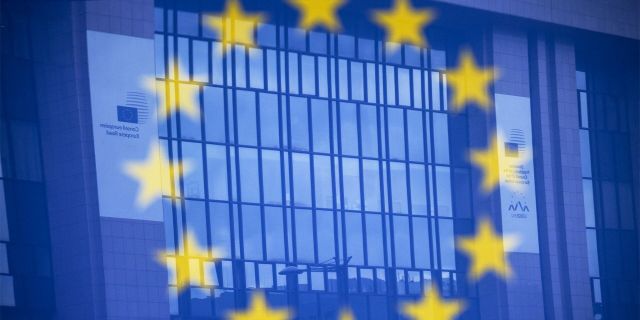Brussels. May 31. INTERFAX - The extraordinary European Council on Tuesday night adopted a political decision on the sixth package of sanctions against Russia, confirming the commitment of the European Council to "increase pressure on Russia and Belarus."
"The European Council urges the Council (EU) to urgently finalize and adopt it (the package, - "IF"), ensuring a well-functioning EU single market, fair competition, solidarity between member states and equal conditions, including with regard to phasing out our dependence on fossil fuels from Russia," - it is stated in the conclusion of the EU summit.
The head of the European Council, Charles Michel, told reporters that the permanent representatives of the European Union will be engaged in the legal formalization of the agreements reached on June 1.
The heads of state and government of the EU countries agreed that "the sixth package of sanctions against Russia will apply to crude oil, as well as petroleum products supplied from Russia."
The imposition of an embargo on the import of Russian oil has become a subject of disagreement and lengthy discussions between EU member states, for the economy of some of them a complete rejection of Russian oil would be devastating. Hungary was the most determined opponent of the embargo.
The acuteness of the disagreements is evidenced by the fact that the President of the European Commission, Ursula von der Leyen, expressed doubt that the entire package of sanctions could be agreed.
"I don't have high hopes that we will resolve the differences within the next 48 hours," she told reporters upon arrival at the summit.
According to the head of the EC, there is still no unity among the EU countries on the issue of the oil embargo.
Nevertheless, according to the head of the European Council Charles Michel, the heads of state and government of the EU countries agreed on an embargo on two-thirds of oil supplied from the Russian Federation.
"There is agreement on a ban on the import of Russian oil to the EU. This will immediately affect more than two-thirds of imported Russian oil," he wrote on the social network.
An alternative option was the decision of the European Council to refuse to supply oil from Russia by sea, while retaining the ability to receive it through pipelines.
At the same time, the head of the European Council, Charles Michel, explained that this decision of the EU leaders is temporary.
"Pipeline deliveries are a temporary measure," he said at a press conference following the first day of the summit.
Michel, however, did not specify the deadline that could be discussed, saying that not only Hungary, but also other landlocked EU countries will be able to purchase pipeline oil.
Von der Leyen welcomed the agreement on the introduction of a partial oil embargo for the Russian Federation and said that this would reduce imports of about 90% of Russian oil by the end of the year.
"I welcome today's agreement of the European Commission on oil sanctions against Russia. This will actually reduce about 90% of oil imports from Russia to the EU by the end of the year," the chairman wrote on the social network on Tuesday night.
She noted that the exception will affect only 10% of imported oil from the Russian Federation. According to her, "we will soon return to the discussion of the topic" on the timing of the permit for the purchase of such oil.
Belgian Prime Minister Alexander De Croo told reporters that the European Commission has not yet set a deadline for the validity of exceptions for Hungary, it will "monitor the situation so that it does not last too long."
The global oil market has already reacted to the decision of the European Council on a partial embargo on Russian oil: the price of Brent futures for delivery in July exceeded $122 per barrel for the first time since March 24.
The summit participants supported the initiative announced earlier, the purpose of which is to find ways to use the frozen assets of the Russian Federation to help Ukraine.
"The European Council supports the study of options, provided they comply with European and international law, aimed, in particular, at using frozen Russian assets to finance the reconstruction of Ukraine," the statement said after the first day of the summit.
As von der Leyen told reporters, "there are also other important elements in the package." In particular, an agreement was reached on disconnecting Sberbank of Russia from SWIFT, maintaining a ban on insurance and reinsurance of Russian ships by EU companies from next year.
Von der Leyen informed that three more Russian state-owned media outlets, which, according to her, "widely spread disinformation," will be stopped broadcasting in the EU countries.
According to Michel, there are also sanctions against individuals.
The leaders of the EU member states urged to pay attention to the issue of supporting Moldova, which is experiencing economic difficulties.
"The European Council stresses the need to provide support to Moldova, which is struggling with interrelated crises: in the economy and in the energy sector. It is also experiencing migration pressure (due to the events in Ukraine - IF)," the statement said after the first day of the EU summit.
A statement following the first day of the summit said: "The European Council calls on all countries to join the EU sanctions. Any attempts to circumvent sanctions or help Russia in other ways should be stopped," the summit concluded.
The participants of the summit called for the speedy consideration of the European Commission's proposal that the violation of the EU sanctions regime be considered a criminal offense.

